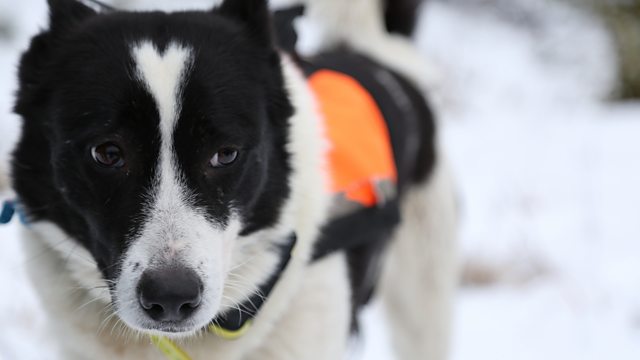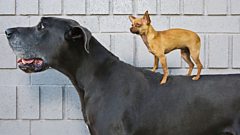Why are Dogs so Different?
There are over 500 breeds of dog – but are they really as different as they seem? CrowdScience heads to Sweden to find out how wolves became the most diverse mammal on Earth.
From Chihuahuas to Great Danes, Mexican Hairless to Afghan Hounds, dogs are the most diverse mammal on the planet. There are currently over 500 recognised breeds worldwide with almost every conceivable combination of size, shape, coat, colour and behaviour.
But why are there so many different kinds of dog?
That's what listener Simon St-Onge in Quebec, Canada wants to know – and CrowdScience has taken up the challenge.
Presenter Marnie Chesterton heads to Sweden, a world-class centre of canine research, to sniff around for answers. She finds out how the grey wolf morphed into the vast variety of dogs we have today, and heads out on a moose hunt with one of Scandinavia's most ancient breeds.
But are dogs really as different as they seem on the surface? The dog genome is revealing more about man's best friend than ever before – and could now be the answer to understanding both dog and human health.
Do you have a question we can turn into a programme? Email us at crowdscience@bbc.co.uk
(Image: Tika, the Russian-European Laika)
Last on
More episodes
Previous
Clips
-
![]()
A bond that’s lasted 3,000 years
Duration: 00:41
-
![]()
Why are there so many breeds of dog?
Duration: 02:05
-
![]()
Why do dachshunds have such short legs?
Duration: 00:29
Broadcasts
- Sat 21 Jan 2017 11:32GMTÂ鶹Éç World Service except Europe and the Middle East, News Internet & South Asia
- Sun 22 Jan 2017 01:32GMTÂ鶹Éç World Service except News Internet
Podcast
-
![]()
CrowdScience
Answering your questions about life, Earth and the universe





